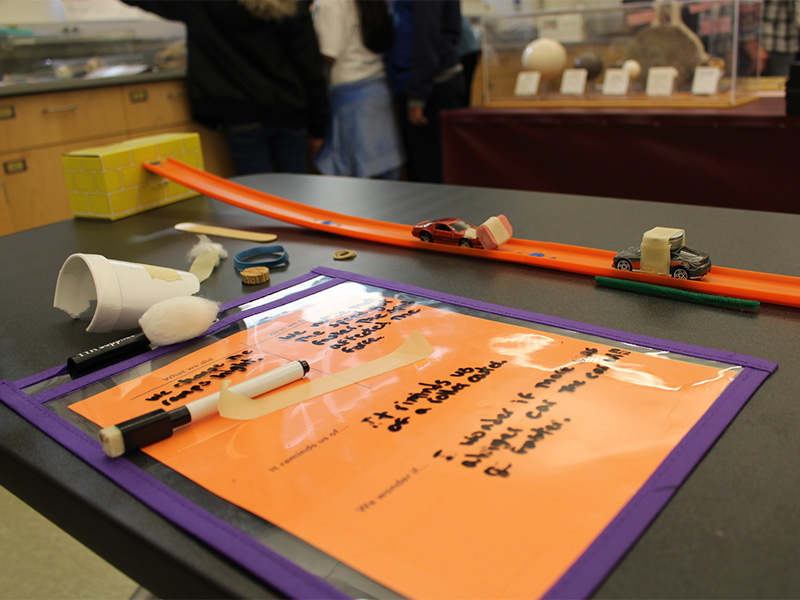Visit the Science Learning Center
Reservations are required for school field trips to the Science Learning Center.
CSULB students, faculty, and staff are welcome to visit us during our regular hours.
School Visits
A typical school visit to the Science Learning Center (SLC) involves an activity led by our staff, and free exploration time for students to explore the exhibits around the SLC. The field trip can be adjusted to fit you desired timeframe, but generally activities will last between 30-45 minutes and free exploration is 10-15 minutes. Specific timeframes can be discussed when a field trip request is submitted.

How to Make a Request
The Science Learning Center is currently available for school visits on Thursdays and Fridays between 9:00am and 2:00pm. The visit to the Center is free, although we ask for a $1/student donation (to help cover supplies) if possible.
Please fill out the Visit Request Form, and an SLC staff member will contact you via email within 2-3 business days to confirm your choices, provide additional information, and answer any additional questions you might have regarding your class visit. Reservations are first come, first serve.
For all other inquiries, please email us directly at science.center@csulb.edu.
The Science Learning Center is located in the Hall of Science in the College of Natural Sciences and Mathematics. As such, all visitors will be required to follow current safety guidelines as determined by the Campus Safety Office, the City of Long Beach, and Los Angeles County. Please check with Center staff for more information.
Activities
The SLC can accommodate one class at a time, up to 30 students. If you are planning to bring more students than that, you may be asked to split the students into multiple groups, visiting the SLC at different times in a rotation.
Below is a list of activities you choose from when visiting the Science Learning Center on a school visit. You will indicate your desired activity on the visit request.
Critter Investigations
Grades 3-8, up to 30 students per session
Students will have the opportunity to observe and study different invertebrates (critters), identifying unique characteristics and behaviors. Older students will also identify researchable questions related to the critters, then plan and carry out an investigation to attempt to answer a question.

Animal Skull Investigations
Grades 3-8, up to 30 students per session
Students will have the opportunity to observe an unknown animal skull. Students will try to identify different parts of the skull that correspond to four different categories: Vision, Eating, Hearing, and Smell. Using this information, students will attempt to answer questions about the animal, providing evidence for each, and ultimately make a final, educated guess to identify the animal based on all of the evidence they collected. This program is adapted based on grade level.

Engineering Challenge
Grades 3-8, up to 30 students per session
Students will be immersed in the Engineering Design Process (EDP) when they are challenged with building a tower using only index cards and limited amount of tape that meets certain weight requirements, e.g., supports a prey animal (stuffed animal) to protect it from predator. Students will be tasked with planning, building, testing, and improving their tower working in groups of 2-4. Steps of the EDP will be highlighted. This program is adapted based on grade level.

Hot Wheel Collisions
Grades 3-8, up to 30 students per session
Students will have the opportunity to investigate potential/kinetic energy and motion using Hot Wheels cars. Students will then be challenged to use their knowledge of motion to design a collision with a particular outcome. Students will be tasked with planning, building, testing, and improving their design working in groups of 2-4. This program is adapted based on grade level.






